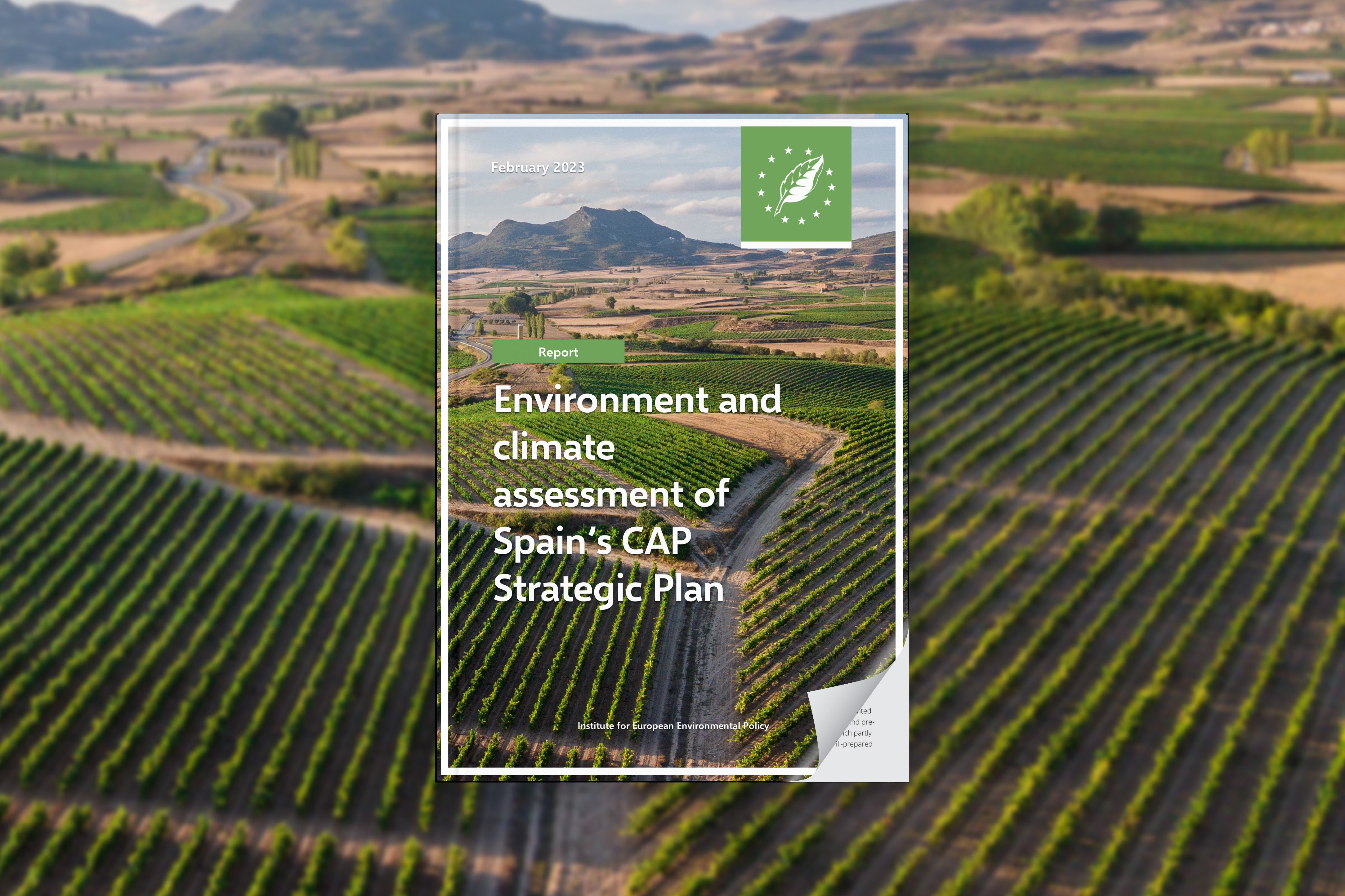AUTHORS: Elisabet Nadeu, Estelle Midler, Juliette Pagnon
This report is part of a series of environmental and climate assessments of CAP Strategic Plans, in Member States with large agriculture sectors. It covers climate mitigation and adaptation, natural resources, and biodiversity protection, in this case for Spain.
This assessment identifies the likely contribution of Spain’s CAP Strategic Plan to climate mitigation and adaptation, natural resources, and biodiversity protection. Overall, the findings are that the country has not significantly increased its environmental and climate ambition for the new CAP.
The current European Union food system has considerable impacts on the climate and environment, being responsible for an estimated 30% of the continent’s GHG emissions. The agriculture sector also puts immense pressure on biodiversity as it is a significant contributor to soil degradation and reductions in water quality and availability. The ecological transition of agri-food systems is therefore necessary and urgent, and the EU Common Agricultural Policy (CAP), is the main funding opportunity available for this purpose.
Our analysis reveals that Spain’s Plan contains some improvements such as increased support for organic farming and a new requirement to register fertiliser and organic inputs to soils (GAEC 10). However, the budget allocation to environmental and socio-economic objectives does not present significant differences to the previous CAP period and falls short of meeting the identified environment, biodiversity and climate needs. Novel interventions like eco-schemes, if properly re-designed and rewarded, as well as revised conditions for coupled income support and investments for irrigation systems, could provide an opportunity to improve the environmental and climate performance of the Spanish agricultural sector, contributing to the objectives set by the European Green Deal.
The report proposes recommendations to improve the potential impact of CAP spending, for the Spanish Plan and for the CAP and EU agrifood policy as a whole. For Spain specifically, we recommend to:
- Address the gaps between the identified challenges and needs and the planned interventions. In the case where a lack of certain specific interventions is complemented by national legislation, explain these in the Plan.
- Strengthen baseline (GAEC) requirements in particular for the area devoted to landscape features and for fertiliser use.
- Review the eco-schemes to strengthen requirements and introduce payments rewarding increased levels of ambition to reward farmers more fairly for their efforts. Extend the bonus to maintain the eco-scheme for subsequent years for all practices, in particular those that lead to an increase in soil organic carbon (to avoid its release in the short-term).
- Improve coherence between the identified needs and the interventions in relation to water quantity and use by introducing more stringent requirements for investments in irrigation systems and improving payments in rainfed areas and promoting shifts to low water-intensive crops.
- Include safeguards to take into account the potential trade-offs between environmental objectives and strengthen the requirements and safeguards on potentially harmful measures such as coupled support for livestock.
- Introduce result-based payments and collective approaches to address specific issues such as the preservation of natural resources and biodiversity.
Read the report. Assessments for France, Germany and Poland are also available.

